Program
Keynote Speakers
For us, by us: Free technology, community science, and the pursuit of environmental problem solving
In a world increasingly defined by environmental deregulation, how can free tools and technology alter the ability for communities to be part of the solution? This talk will explore a decade of work where community science and free technology have been used to support people in addressing environmental concerns. Focusing on the work of Public Lab, the talk will take us from the 2010 BP oil disaster through the rapid growth of free technology for environmental monitoring, and take a closer look at the challenges we face going forward with data, hardware, and governance.
Shannon Dosemagen
Shannon is an environmental health advocate and a community science champion, and is enthusiastic about the potential for free systems and technology to support the creation of a more just and equitable future.
Shannon has spent the last twenty years working with environmental and public health groups to address declining freshwater resources, coastal land loss, and building monitoring programs with communities living adjacent to industrial facilities. During 2020, she will be a Fellow with the Shuttleworth Foundation, working on new concept called the Open Environmental Data Project. Shannon is co-founder and current executive director of Public Lab, an organizer of the Gathering for Open Science Hardware, and previous chair of both the US EPA National Advisory Council on Environmental Policy and Technology, and the Citizen Science Association. She is an Ashoka Fellow, and a senior Fellow of the Environmental Leadership Program. She is a previous Fellow at both the Harvard Berkman Klein Center for Internet and Society, and Loyola University Environmental Communications Institute. Follow her on Twitter @sdosemagen for the latest.
Shannon has spent the last twenty years working with environmental and public health groups to address declining freshwater resources, coastal land loss, and building monitoring programs with communities living adjacent to industrial facilities. During 2020, she will be a Fellow with the Shuttleworth Foundation, working on new concept called the Open Environmental Data Project. Shannon is co-founder and current executive director of Public Lab, an organizer of the Gathering for Open Science Hardware, and previous chair of both the US EPA National Advisory Council on Environmental Policy and Technology, and the Citizen Science Association. She is an Ashoka Fellow, and a senior Fellow of the Environmental Leadership Program. She is a previous Fellow at both the Harvard Berkman Klein Center for Internet and Society, and Loyola University Environmental Communications Institute. Follow her on Twitter @sdosemagen for the latest.
Locking the Web open: A decentralized web that can operate as free software does
30 years after the World Wide Web was created, can we now make it better? How can we ensure that our most important values -- privacy, free speech, and free access to knowledge -- are enshrined in the code itself? In a provocative call to action, entrepreneur and libre Internet advocate Brewster Kahle challenges us to build a better, decentralized Web based on new distributed technologies. Web site content and code could be served peer-to-peer, with decentralized pseudonymous identity, and even payment models. What a world it could be! He lays out a path to creating a new Web that is reliable, private, but still fun -- in order to lock the Web open for good.
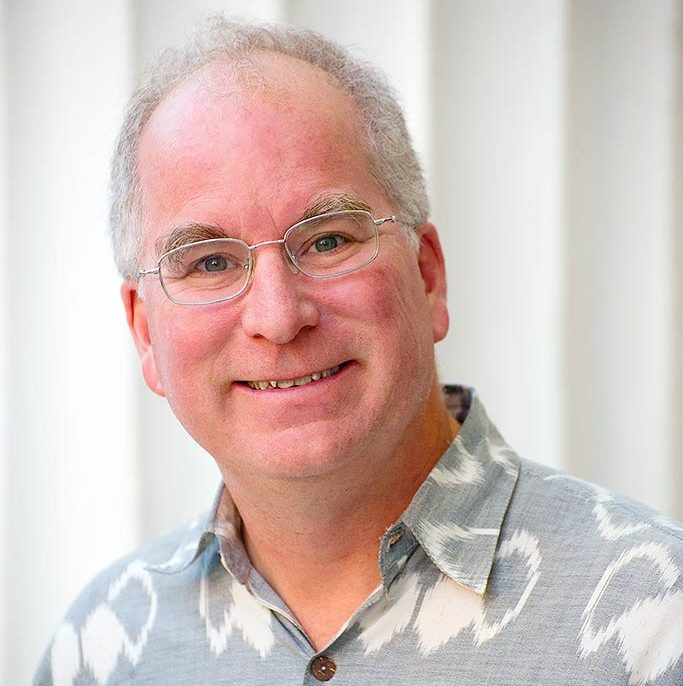
Brewster Kahle
Brewster Kahle is a passionate advocate for public Internet access, and a successful entrepreneur, and he has spent his career intent on a singular focus: providing Universal Access to All Knowledge. He is the founder and Digital Librarian of the Internet Archive, one of the largest libraries in the world. Soon after graduating from the Massachusetts Institute of Technology, where he studied artificial intelligence, Kahle helped found the company Thinking Machines, a parallel supercomputer maker. In 1989, Kahle created the Internet's first publishing system, called Wide Area Information Server (WAIS), later selling the company to AOL. In 1996, Kahle co-founded Alexa Internet, which helps catalog the Web, selling it to Amazon.com in 1999. The Internet Archive, which he founded in 1996, now preserves 50 petabytes of data: the books, Web pages, music, television, and software of our cultural heritage, working with more than 600 library and university partners to create a digital library, accessible to all.
Free the Future Young Hackers Keynote Panel
The future of the free software movement depends upon the work of its youngest members, the developers and community members responsible for carrying on the legacy of its founding ideas. As all of us in the world of free software have something to learn from this generation of newcomers, the FSF will be presenting an interview panel with three rising members of the community: Alyssa Rosenzweig, Panfrost developer and former FSF intern; Taowa, the youngest (non-uploading) Debian Developer in the project's history; and Erin Moon, developer of the Rustodon implementation of ActivityPub.
The panel will focus on topics that are crucial to the movement's continuing success and "freeing the future," including keeping our focus on the principles of freedom, making a place for the youngest or historically excluded members of the community, and responding to the rise of surveillance capitalism. The panel will be moderated by Greg Farough, campaigns manager of the FSF.
The panel will focus on topics that are crucial to the movement's continuing success and "freeing the future," including keeping our focus on the principles of freedom, making a place for the youngest or historically excluded members of the community, and responding to the rise of surveillance capitalism. The panel will be moderated by Greg Farough, campaigns manager of the FSF.

Alyssa Rosenzweig, Taowa, and Erin Moon
Alyssa Rosenzweig is a free software hacker working at Collabora. Passionate about freedom at the lowest levels, she leads the Panfrost project to build a free graphics stack for Mali GPUs. She is studying Applied Mathematics at the University of Toronto as a Lester B. Pearson International Scholar. Outside school and software, she likes to make pony puns on XMPP, trot around Toronto, and horse around in the kitchen.
Taowa is a (non-uploading) Debian Developer, sysadmin, and free software enthusiast. His interests are in privacy and security tools (and making these accessible to everyone), as well as amateur radio, networking and electronics. Did we mention he's not old enough to vote yet?
Erin Moon is an engineer, student, musician, and very tired. She's used, contributed to, and developed free software since she was a small kid. Over the last three years, her open source work has focused on federated social media software, as a user, contributor, and maintainer. Her other personal work includes digital signal processing research for musical purposes, ROM hacking, operating system development, and electrical hardware engineering.
Taowa is a (non-uploading) Debian Developer, sysadmin, and free software enthusiast. His interests are in privacy and security tools (and making these accessible to everyone), as well as amateur radio, networking and electronics. Did we mention he's not old enough to vote yet?
Erin Moon is an engineer, student, musician, and very tired. She's used, contributed to, and developed free software since she was a small kid. Over the last three years, her open source work has focused on federated social media software, as a user, contributor, and maintainer. Her other personal work includes digital signal processing research for musical purposes, ROM hacking, operating system development, and electrical hardware engineering.
Speakers
Fediverse: Decentralized Social Networking and Services
The Fediverse is a collection of decentralized digital, social spaces. Disparate services can interact by using standard protocols such as ActivityPub.
Free Software projects such as Mastodon, Nextcloud, Pleroma, PixelFed, Plume, PeerTube and Friendica are helping us decentralize the web.
Attendees will learn about:
* advantages of decentralized social networking
* history of decentralized social networking
* history of the Fediverse
* pros and cons of self-hosting
* list of some services in the Fediverse
* how they can join and participate in decentralizing
Free Software projects such as Mastodon, Nextcloud, Pleroma, PixelFed, Plume, PeerTube and Friendica are helping us decentralize the web.
Attendees will learn about:
* advantages of decentralized social networking
* history of decentralized social networking
* history of the Fediverse
* pros and cons of self-hosting
* list of some services in the Fediverse
* how they can join and participate in decentralizing
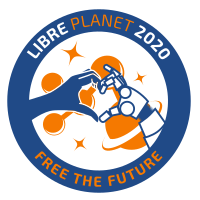
der.hans .
der.hans is a technology and entrepreneurial veteran.
He is chairman of the Phoenix Linux User Group (PLUG), Promotions and Outreach chair for SeaGL, BoF organizer for the Southern California Linux Expo (SCaLE) and founder of the Free Software Stammtisch. He presents regularly at large community-led conferences (SCaLE, SeaGL, LFNW, Tübix, OLF, TXLF) and many local groups.
Currently a Customer Data Engineer at Object Rocket. Public statements are not representative of $dayjob.
Mastodon - https://floss.social/@FLOX_advocate
Plume - https://fediverse.blog/~/LuftHans
He is chairman of the Phoenix Linux User Group (PLUG), Promotions and Outreach chair for SeaGL, BoF organizer for the Southern California Linux Expo (SCaLE) and founder of the Free Software Stammtisch. He presents regularly at large community-led conferences (SCaLE, SeaGL, LFNW, Tübix, OLF, TXLF) and many local groups.
Currently a Customer Data Engineer at Object Rocket. Public statements are not representative of $dayjob.
Mastodon - https://floss.social/@FLOX_advocate
Plume - https://fediverse.blog/~/LuftHans
Free software for minorities in Turkey in their own languages
In Turkey, along the Anatolia, more than 25 languages are spoken. Our organization, Özgür Yazılım Derneği (Free Software Association of Turkey), wanted to translate our Web site and works to Anatolian languages including Kurdish, Zazaki, Lazuri, and Homshetsi. Through conversations with culture institutes and associations, we learned that Anatolian minorities, who are also enduring repressive assimilation policies, are not able to use their devices with their own languages.
Free software and freedom philosophy gives a ray of hope to Anatolian minorities. We are “freeing the future” by translating and documenting GNU/Linux, GNOME, Firefox, LibrePlanet, and perhaps Android/Replicant to their languages, as well as Wiktionary and Wikisource, to help them keep their languages alive.
Free software and freedom philosophy gives a ray of hope to Anatolian minorities. We are “freeing the future” by translating and documenting GNU/Linux, GNOME, Firefox, LibrePlanet, and perhaps Android/Replicant to their languages, as well as Wiktionary and Wikisource, to help them keep their languages alive.
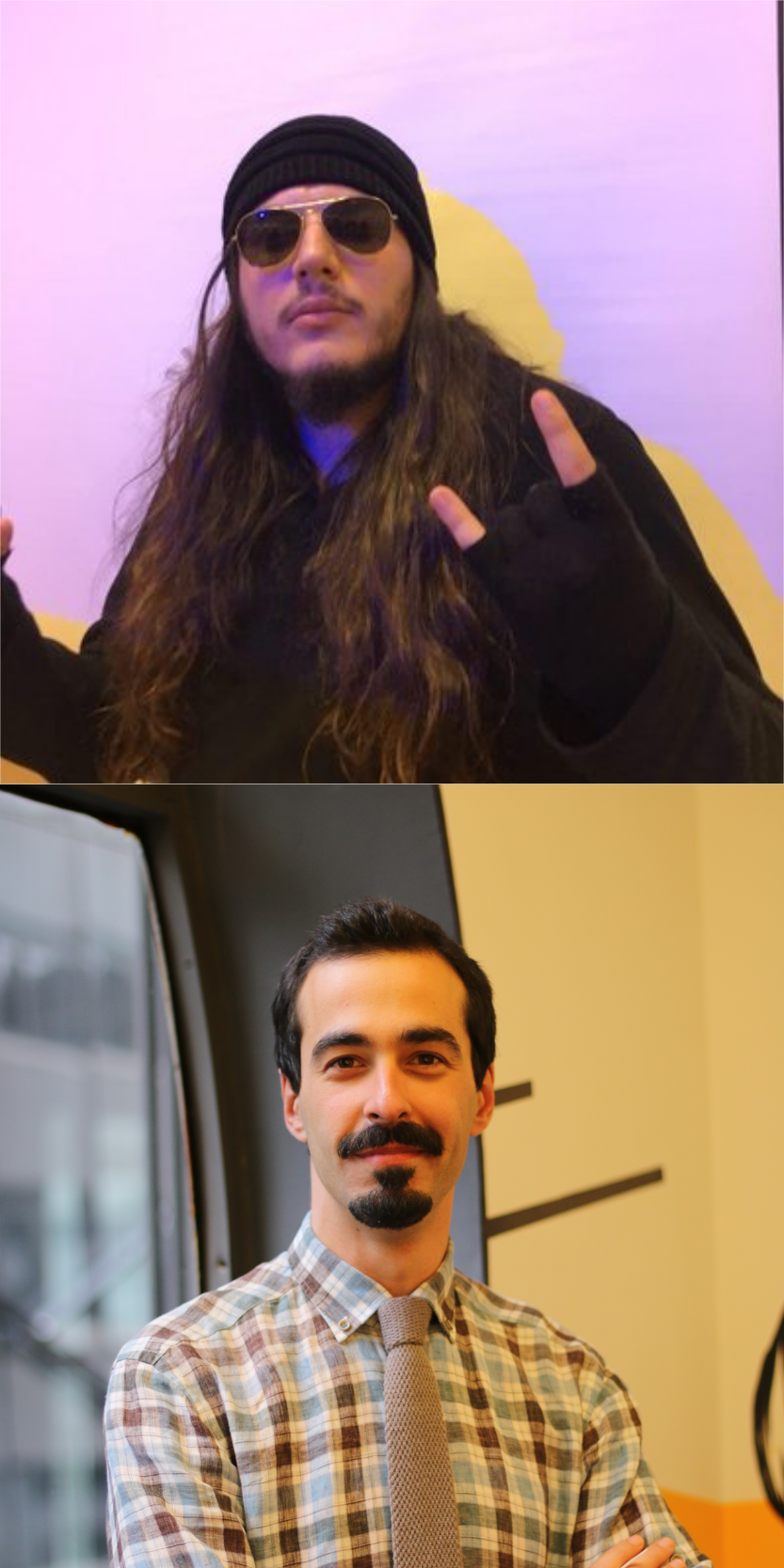
Özcan Oğuz and Alper Atmaca
Özcan Oğuz
Özcan Oğuz is the president of the Free Software Association (Özgür Yazılım Derneği) in Turkey. Ze started to use computers when ze was 2, in 1999. In 2007, with the Pardus project, ze first encountered free software philosophy and starting from then ze uses exclusively free software in zis devices. Ze graduated from Kadıköy Anadolu High School and Boğaziçi University. From 2016 to 2018, ze was working as publisher and journalist at Çırak mag and Abaküs Kitap. In 2017, ze founded Hackerspace Istanbul in Kadıköy, İstanbul. For three years, ze has been an instructor at Mustafa Akgül Free Software Camps, teaching GNU/Linux system administration.
Alper Atmaca
Born into 56K era and run his clock with potatoes when he was a child.
Failed to keep time accurately with potatoes and upgraded to solar
power. Failed again, kept learning and became a part of hacker
community. Graduated from Law faculty, become a lawyer and applies his
technological knowledge to law. Strict online privacy advocate, free
software user/advocate, Hackerspace Istanbul (hs.ist) member and very
interested in anything encrypted.
Özcan Oğuz is the president of the Free Software Association (Özgür Yazılım Derneği) in Turkey. Ze started to use computers when ze was 2, in 1999. In 2007, with the Pardus project, ze first encountered free software philosophy and starting from then ze uses exclusively free software in zis devices. Ze graduated from Kadıköy Anadolu High School and Boğaziçi University. From 2016 to 2018, ze was working as publisher and journalist at Çırak mag and Abaküs Kitap. In 2017, ze founded Hackerspace Istanbul in Kadıköy, İstanbul. For three years, ze has been an instructor at Mustafa Akgül Free Software Camps, teaching GNU/Linux system administration.
Alper Atmaca
Born into 56K era and run his clock with potatoes when he was a child.
Failed to keep time accurately with potatoes and upgraded to solar
power. Failed again, kept learning and became a part of hacker
community. Graduated from Law faculty, become a lawyer and applies his
technological knowledge to law. Strict online privacy advocate, free
software user/advocate, Hackerspace Istanbul (hs.ist) member and very
interested in anything encrypted.
Lessons learned from cultivating free software projects and communities
Over the last decade, I’ve had the privilege professionally of building and cultivating some free software projects and communities. This isn’t a tools talk: this is a talk about the soft skills you have to have to be able to succeed as a leader in an free software project. I’ve learned a ton on this journey; honestly I still am learning, but I have some lessons to share, and hopefully, I can warn attendees about pitfalls that can cause wasted cycles and pain. Topics will include scoping your project, personally-backed versus corporate-backed projects, why empathy and audience is important, celebrations, defeats, successful traits of free software projects, and more.
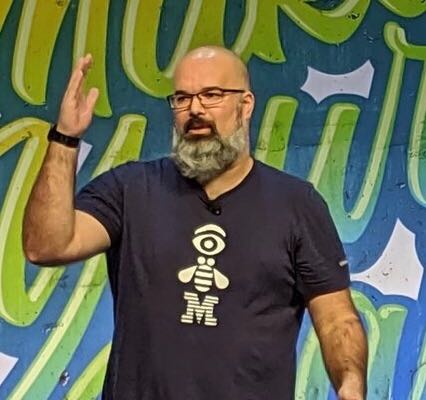
JJ Asghar
JJ works on the IBM cloud as a developer advocate. He’s focusing on the IBM Kubernetes service, trying to help companies and users have a successful onboarding to the Cloud Native ecosystem.
He lives and grew up in Austin, Texas. He enjoys a good strong stout, a hoppy IPA, and Dwarf Fortress, Rimworld, and Factorio. He’s a member of the Church of Emacs, though he jumps into Vim on remote machines. He usually chooses Ubuntu over CentOS, but secretly wants FreeBSD everywhere. He’s always trying to become a better Ruby developer, but experiments with Go, Python, and only when he has to, Node. A father and husband, if he’s not trying to automate his job away, he’s always trying to convince his daughters to “be button makers, not button pushers.”
He lives and grew up in Austin, Texas. He enjoys a good strong stout, a hoppy IPA, and Dwarf Fortress, Rimworld, and Factorio. He’s a member of the Church of Emacs, though he jumps into Vim on remote machines. He usually chooses Ubuntu over CentOS, but secretly wants FreeBSD everywhere. He’s always trying to become a better Ruby developer, but experiments with Go, Python, and only when he has to, Node. A father and husband, if he’s not trying to automate his job away, he’s always trying to convince his daughters to “be button makers, not button pushers.”
How to make more users love free software
In the free software ecosystem most users end up being someone who has a technological background. Meanwhile, many regular software users stick to proprietary solutions.
This talk covers the love story between free software and usability and how easily we can improve the user experience on our products by running usability tests along different stages of the development cycle. Further, we will learn how to run these tests on our own, while commenting on experiences running usability tests on GNOME. We also discuss how to create ways for the community to start contributing.
This talk covers the love story between free software and usability and how easily we can improve the user experience on our products by running usability tests along different stages of the development cycle. Further, we will learn how to run these tests on our own, while commenting on experiences running usability tests on GNOME. We also discuss how to create ways for the community to start contributing.
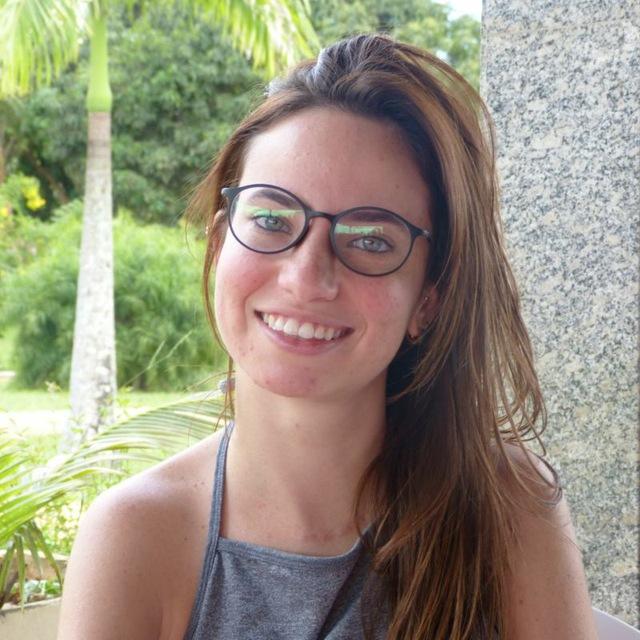
Clarissa Borges
Clarissa Borges is a Software Engineering student at the University of Brasília, where she learned to love free software. She always loved designing software architectures, programming, and automating tasks. But knowing all of this was not enough, because the whole point of creating software for her was to ease people's lives, and she didn't know how to make her software more usable.
At this point, Clarissa heard about Outreachy and found a Usability Research project to GNOME. This was the perfect occasion to contribute to a software she has been using for so many years and learn how to improve usability on software products. From December 2018 to March 2019, she worked running usability tests to some important GNOME programs, such as Settings, Notes, Nautilus/ Files, Calendar and Gedit.
After the internship, she wanted to help GNOME with frequent usability tests contributions. To archieve that, she has been working on her undergraduate thesis to find a solution to facilitate to non-technical people to contribute with usability tests. She has also been contributing to GNOME, encouraging people to become contributors and being active on GNOME's Brazilian community.
At this point, Clarissa heard about Outreachy and found a Usability Research project to GNOME. This was the perfect occasion to contribute to a software she has been using for so many years and learn how to improve usability on software products. From December 2018 to March 2019, she worked running usability tests to some important GNOME programs, such as Settings, Notes, Nautilus/ Files, Calendar and Gedit.
After the internship, she wanted to help GNOME with frequent usability tests contributions. To archieve that, she has been working on her undergraduate thesis to find a solution to facilitate to non-technical people to contribute with usability tests. She has also been contributing to GNOME, encouraging people to become contributors and being active on GNOME's Brazilian community.
Free software for community radio: LibreTime and other software tools
This presentation will provide a summary of current free software tools that can be used in operating a terrestrial or Internet-based community radio station. It will focus primarily on LibreTime, an AGPLv3-licensed radio automation system, and some of the underlying free software components it is built with, including Icecast and Liquidsoap. I will share how LibreTime is used by my community FM station, WCRS-LP, to operate our broadcast using primarily free software, and some of the challenges faced in doing so. I will also share information about some other free software projects, like AzuraCast and Rivendell, to provide overview of the free software landscape for radio stations. My hope is this will serve as a blueprint of inspiration for other people seeking ways of running their radio station using free software. Community media can serve a vital role in informing the public, and free software can play an essential part of this.
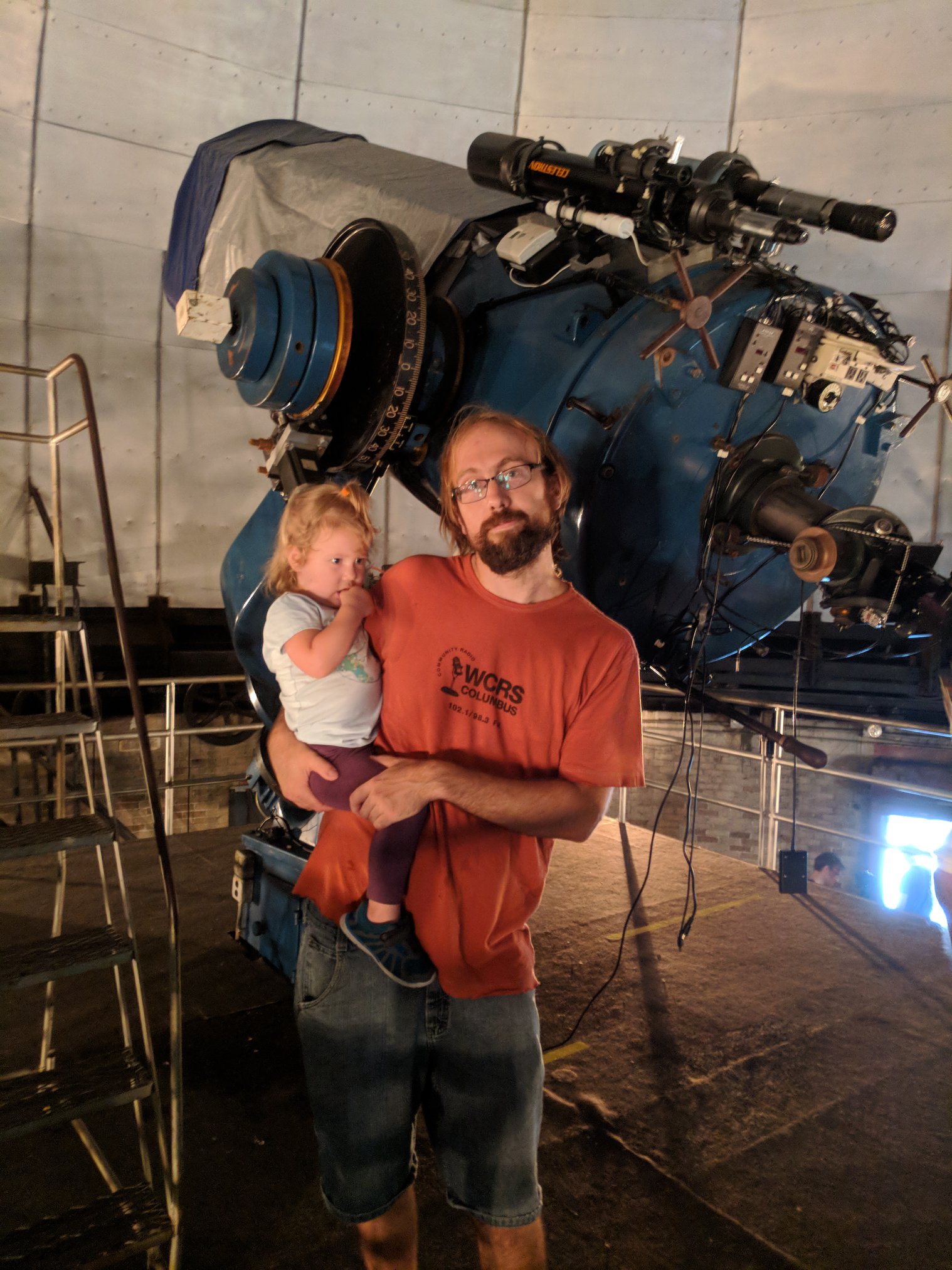
Robb Ebright
Robb Ebright is a longtime free software developer and community media activist. For over ten years, he has helped run WCRS-LP, a community radio station in Columbus, Ohio. He has volunteered as a webmaster for community media projects and activist groups for over twenty years. Currently, he is a full-time parent working on his masters in computer science at Georgia Tech.
Free software and the digital divide
Free Geek Toronto is a nonprofit organization that seeks out unwanted electronics donations for reuse, primarily using free software. Our model focuses on building digital inclusion by accessible technology while also providing skills building and employment opportunities to community members facing barriers to participation. This also reduces the waste that ends up in landfills, and helps combat the problem of lack of access to personal computing devices, which is necessary to close the digital divide.
This presentation focuses on the positives, challenges, and ongoing conversation around using free software to bridge the digital divide, specifically on barriers to entry regarding the level of digital literacy required to complete daily tasks using free software, involving people in the circular economy model of technology reuse, and what possible solutions exist or can be developed.
This presentation focuses on the positives, challenges, and ongoing conversation around using free software to bridge the digital divide, specifically on barriers to entry regarding the level of digital literacy required to complete daily tasks using free software, involving people in the circular economy model of technology reuse, and what possible solutions exist or can be developed.

Ryan Fukunaga
Ryan is the executive director of Free Geek Toronto, an employment social enterprise focused on increasing digital inclusion in Toronto through the reuse of electronic equipment. Working here has allowed Ryan to focus on his interests in capacity building, fostering a DIY/hacker/maker
ethos, environmental stewardship, and building technological resiliency for marginalized communities.
For the past five years, he has also been the project lead of Digital Storytelling Toronto, an initiative aimed at increasing digital literacy through storytelling in community and nonprofit organizations. Through this work, he has completed projects with the University of Toronto Scarborough, Brock University, East Scarborough Storefront, Children's Hospital of Eastern Ontario, and Holland Bloorview Kids Rehabilitation Hospital.
Ryan holds an Honours Bachelor of Arts from the University of Toronto, and a Bachelor of Education from the University of Windsor, along with years of experience managing small business IT infrastructure.
ethos, environmental stewardship, and building technological resiliency for marginalized communities.
For the past five years, he has also been the project lead of Digital Storytelling Toronto, an initiative aimed at increasing digital literacy through storytelling in community and nonprofit organizations. Through this work, he has completed projects with the University of Toronto Scarborough, Brock University, East Scarborough Storefront, Children's Hospital of Eastern Ontario, and Holland Bloorview Kids Rehabilitation Hospital.
Ryan holds an Honours Bachelor of Arts from the University of Toronto, and a Bachelor of Education from the University of Windsor, along with years of experience managing small business IT infrastructure.
Free software enables free science
The principles of free software encourage and enable free science. This talk will cover one academic's experience with free software in academia. The major takeaway is that the principles of free software make for good science. The talk will cover topics on free software development for research purposes, including dissemination and evaluation, as well as teaching, both for supporting education and for teaching about the tools themselves. I will go over (1) how free software has supported my own research by enabling sharing and integration of multiple research projects; (2) how free software is (or is not) used in the academic literature and the effects on repeatability; and (3) how I integrate free software tools in my own courses.

Paul Gazzillo
Paul Gazzillo is an assistant professor of computer science at University of Central Florida. His research aims to make it easier to develop safe and secure software, and it spans programming languages, security, software engineering, and systems. Projects include analysis of configurable systems, side-channel attack detection, and concurrent smart contracts.
Rented future: The dangerous rise of life as a service
We are entering the post-ownership age. In recent years, the Service as a Software Substitute (SaaSS) model, which is already dominant in many areas of consumer software, has begun to spread into other aspects of our lives. It will soon be, if it isn't already, possible to live without actually owning possessions. You can now get your clothes, electronics and food -- among many other items -- on subscription, as well as real-world services such as laundry and transport. In time, we are set to see a handful of companies renting you everything you rely on, and that gives them incredible power, not only in terms of your possessions, but also in terms of their ideological control over you and the wider population. This session explores the potential damage of the Life as a Service (LaaS) model, and what free software can do to help.
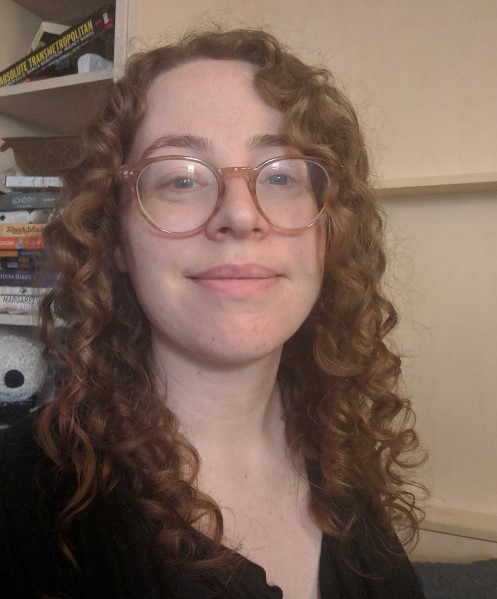
Lucy Ingham
Lucy Ingham is a technology journalist and the editor of the Web site and digital magazine "Verdict." She is the former editor of the futurist site "Factor," and she specializes in exploring how technology is shaping the world we live in.
Field notes from a digital rights activist
Drawing on their work doing privacy workshops, art exhibitions, and free software advocacy, Giselle will discuss community building strategies and heuristics in two seemingly different environments, the US and China. They will examine cultural perspectives, and reflect on those experiences to help us better understand ourselves and how to communicate with others to grow the free software movement.
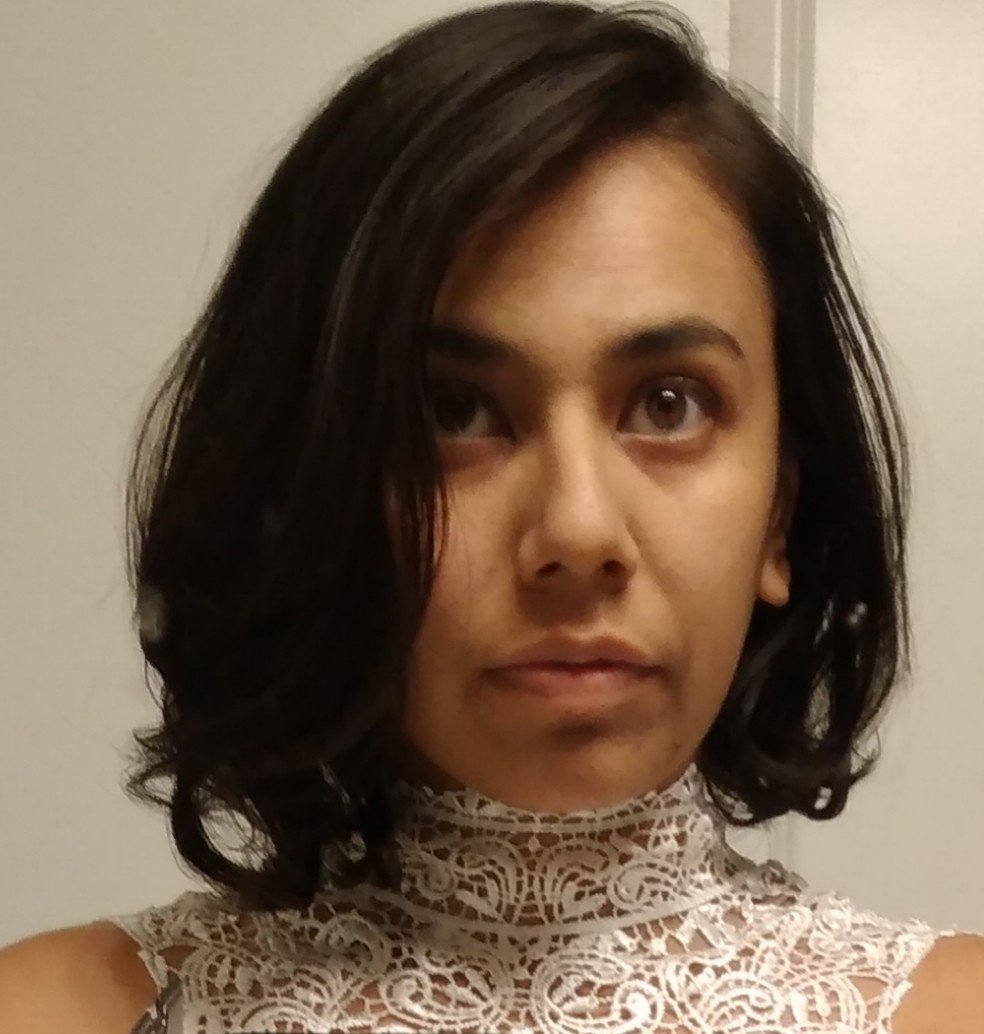
Giselle Jhunjhnuwala
Giselle is an artist, self-taught programmer, and Outreachy alumna. They like to explore the intersections of art, science, and technology, and have been exclusively using free software in their practice for several years. They have worked in technology and at an import/export multinational company, which enabled them to travel back and forth between China and the US. They are a member of the Pittsburgh Restore the Fourth chapter, The Big Idea (a collectively run bookstore), and the Stranger Company Art Collective. In their spare time, they volunteer for various free software projects such as Mediawiki, and write songs about PGP. They have exhibited at a number of private and state galleries in China, as well as in the US.
Transparent code, secure data: Selling free software to the US Government, our bosses, and ourselves
How many times have you heard someone say that free software seems insecure, that it’s buggy, that it’s a pain to install or use, or that it just looks unprofessional? We love using and championing free software, but how do we sell it in our work? How do we convince clients that free software is professional, secure, reliable, and useful? And how do we help them learn about the ethical and moral value of free software, and empower them to share that message? In this session, we’ll talk through our methods of promoting free software in government digital services projects. We’ll share some wins, some not so successful attempts, and some future initiatives, and talk about how you can make changes at your own organizations. And we’ll share our git repo with some playbooks and strategies for those who want to bring this work back to their own companies!

Karen Johnson
Karen Johnson is curious, self-motivated, and addicted to learning. She keeps software systems healthy, and is constantly looking for ways to automate, standardize, and improve the way they work. She is known for tackling hard problems and coming up with creative, repeatable solutions.
Karen studied art history at Bard College, but soon fell in love with technology systems (especially GNU/Linux) -- so she followed her heart and became a tech nerd. She’s also a darn good tango dancer, and an enthusiastic reader of science fiction.
This talk will be co-presented with Fen Labalme, who loves to create solutions for problems before they arise. His current mission is to empower better government by delivering free software security and compliance solutions that improve upon previous proprietary systems. He’s also working on automating the ATO process, making it easier for agencies to do business securely. He applies over twenty years of IT experience (and a relentless sense of humor) to mentor CivicActions engineers in creating modern, secure systems for clients.
Fen is a Certified Information System Security Professional (CISSP) and a long-time advocate of handling information wisely. His computer science and electrical engineering thesis at MIT presaged the privacy concerns facing today’s Internet and social media platforms. His close-knit family enjoys traveling to historic locations, campaigning for a greener Earth, and playing/cheering at hockey games.
Karen studied art history at Bard College, but soon fell in love with technology systems (especially GNU/Linux) -- so she followed her heart and became a tech nerd. She’s also a darn good tango dancer, and an enthusiastic reader of science fiction.
This talk will be co-presented with Fen Labalme, who loves to create solutions for problems before they arise. His current mission is to empower better government by delivering free software security and compliance solutions that improve upon previous proprietary systems. He’s also working on automating the ATO process, making it easier for agencies to do business securely. He applies over twenty years of IT experience (and a relentless sense of humor) to mentor CivicActions engineers in creating modern, secure systems for clients.
Fen is a Certified Information System Security Professional (CISSP) and a long-time advocate of handling information wisely. His computer science and electrical engineering thesis at MIT presaged the privacy concerns facing today’s Internet and social media platforms. His close-knit family enjoys traveling to historic locations, campaigning for a greener Earth, and playing/cheering at hockey games.
Preventing the IoT Dystopia with Copyleft
Most IoT (The Internet of Things) devices remain under the control of the companies that manufacture them, yielding a plethora of security, privacy and software freedom concerns. Ironically, most such devices include Linux as their kernel, and usually no GNU. Linux's license, GPLv2, mandates the users' rights to modify and upgrade the software. Sadly, due to widespread violations of the GPL, such rights are rarely granted with most IoT devices on the market. This talk explains the political, social, and legal backstory that led to this abysmal situation, and proposes what we must do next to ameliorate the problem.
These embedded devices typically remain under the complete control of the manufacturer — not only for their basic functionality — but for safety and security updates as well. In many cases, these devices require Herculean efforts by the home user to modify and upgrade.
This talk explains the political, social, and legal ramifications of this abysmal situation. Attendees can expect a full explanation of the history of GPL enforcement, how it has historically defended the rights of hobbyist modifications to home devices, and what processes exist now to continue that fight.
These embedded devices typically remain under the complete control of the manufacturer — not only for their basic functionality — but for safety and security updates as well. In many cases, these devices require Herculean efforts by the home user to modify and upgrade.
This talk explains the political, social, and legal ramifications of this abysmal situation. Attendees can expect a full explanation of the history of GPL enforcement, how it has historically defended the rights of hobbyist modifications to home devices, and what processes exist now to continue that fight.

Bradley Kuhn
Bradley M. Kuhn is the policy fellow and hacker-in-residence at Software Freedom Conservancy, and editor in chief of copyleft.org. Kuhn began his work in the software freedom movement as a volunteer in 1992, and was an early adopter of GNU/Linux systems. Kuhn's nonprofit career began in 2000 at the FSF. As FSF's executive director from 2001-2005, Kuhn led FSF's GPL enforcement, and invented the Affero GPL. Kuhn began as Conservancy's primary volunteer from 2006-2010, and was its first staff person. Kuhn holds a summa cum laude BS in computer science from Loyola University in Maryland, and an MS in computer science from the University of Cincinnati.
Keeping secrets: What you need to know about encryption
From ciphers to cybersecurity, encryption is all around us. We rely on digital security while we bank, shop, and communicate. At the core of that security lies encryption. As developers, we use some form of encryption in our work every day. Maybe we are storing or sending data online, implementing authentication protocols, or protecting our customers' payment information.
This talk will cover the basics of a topic extensive enough to spend years studying. What is encryption? How does it work? Why is it important? You can expect to come away with a solid understanding of the foundational concepts of encryption. We will also take a little bit of time to peek into the future of encryption, where things are getting exciting!
This talk will cover the basics of a topic extensive enough to spend years studying. What is encryption? How does it work? Why is it important? You can expect to come away with a solid understanding of the foundational concepts of encryption. We will also take a little bit of time to peek into the future of encryption, where things are getting exciting!
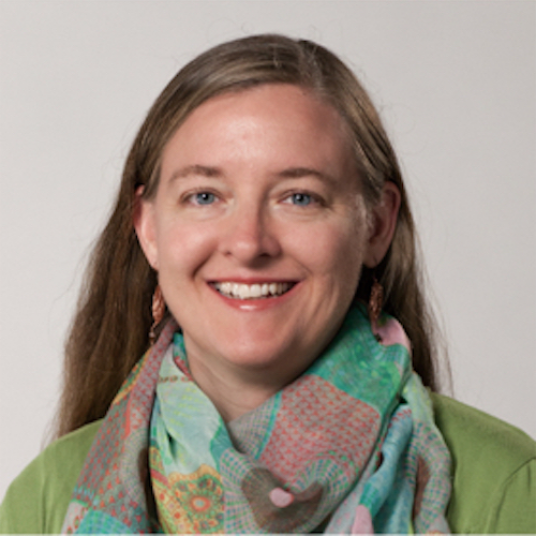
DeeDee Lavinder
DeeDee Lavinder currently works as a backend engineer, and is a director of Women Who Code Raleigh/Durham. The juxtaposition of analytical thinking and creative problem solving is where she is happiest, and she is particularly thrilled about working in that sweet spot while writing code. When something is hard, she goes deep to understand -- ask her about encoding! When not coding, you can find her listening to audiobooks, driving small people around town, or coordinating something somewhere.
Secure Scuttlebutt: Peer-to-peer collaboration and community infrastructure
Secure Scuttlebutt (SSB) is a technology for decentralized, peer-to-peer, offline-first social media applications based on cryptographic identities. In this session, we will introduce the SSB network and protocol. We will present some of the applications on the network for social networking, games, and code collaboration. We will also look at the values and culture emergent on the SSB network (including the solarpunk aesthetic), how it organizes and funds itself, how it practices diversity and inclusion, and where it may head in the future.

Charles Lehner
Charles E. Lehner (@cel) is a software developer building collaborative applications on the Secure Scuttlebutt Network.
How to teach students about free software
As most free software advocates know, it can be very difficult to explain the central concepts to people who have never heard of these ideas before. If you introduce too many things at once, people tend to tune you out from being overwhelmed, and then they don't really appreciate the benefits of free software.
This presentation will explain effective strategies to teach the next generation what free software is, how it differs from proprietary software, and how licenses like the GPL and BSD 3-Clause have similar goals yet different legal implementations. William has been teaching (and grading) his college students on these concepts, and he will show you how to do the same for your students or your friends. Foundational legal concepts like copyright, patents, and trademarks will be clarified, as well as how to break down the main software license categories: copyleft (strong/weak), permissive, and proprietary.
This presentation will explain effective strategies to teach the next generation what free software is, how it differs from proprietary software, and how licenses like the GPL and BSD 3-Clause have similar goals yet different legal implementations. William has been teaching (and grading) his college students on these concepts, and he will show you how to do the same for your students or your friends. Foundational legal concepts like copyright, patents, and trademarks will be clarified, as well as how to break down the main software license categories: copyleft (strong/weak), permissive, and proprietary.
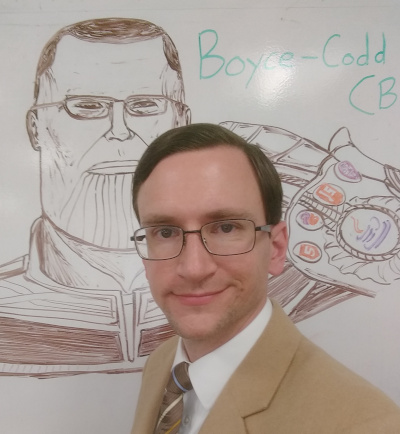
William Liggett
William Paul Liggett is a software engineering professor at the Northern Virginia Community College, where he teaches classes on Java, Python, HTML5/CSS3/JavaScript, Relational Databases, Cybersecurity, and GNU/Linux. He also is the owner and coder of junktext.com, where he does freelance development for others. William previously worked in the US defense and intelligence communities as a software developer, IT project manager, and systems administrator. He served in the US Marine Corps, where he was meritoriously promoted to Sergeant (E-5). He is also very skilled at amazing and very funny jokes!
The Four Free-ums?
Software licenses that give people freedom are facing scrutiny from a variety of interests and organizations. This session seeks to articulate the core values of software freedom: how the tenets of FSF's Four Freedoms and the Open Source Definition's criteria enable networks of collaboration and co-creation. Current issues from a variety of interested parties are considered, not on their value as a movement, but rather their impact on the freedoms to run, study, modify, and redistribute works. Alternative approaches to licensing that can address concerns of communities will also be offered.

Patrick Masson
Patrick Masson joined the Open Source Initiative as General Manager in November of 2013 after working in higher education technology for over twenty years, including roles as Director of the UCLA Media Lab, CIO within The State University of New York, and most recently, CTO at UMassOnline. Patrick is an Adjunct Professor at the University at Albany, teaching Open Source Principles and Practices within the College of Engineering and Applied Sciences' Department of Informatics. Patrick has worked to promote the awareness and adoption of open source, particularly within education, throughout his career. He served on the Jasig Foundation's Board of Directors, and is currently on the Apereo Foundation's Advisory Council as well as Brandeis University's Graduate Professional Studies Advisory Board. He is the co-founder of the Educause Constituency Group on Openness. Patrick was also elected to his local Board of Education in 2014.
Platform cooperativism, surveillance capitalism, predictive analysis, and you
Our data makes us unique. How can we own our data? Are we more powerful if we align into groups? How do we own the software platforms we use? How does cooperative development work? How do we share work on large projects? Why and how will free software help us in this era of surveillance? There are so many questions, and very little time for us to come up with solutions or responses. The tech industry has all but left free software in the dust, while spreading malware and using disingenuous advertising campaigns. We can find ways to build the future with free software, but we also need to raise awareness. Although free software is not the answer to all of society's problems, it plays a huge role in how much control we have over our own data and our own future as citizens and as workers.
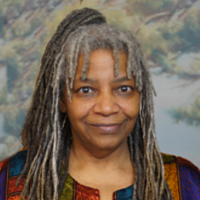
Micky Metts
Micky is a worker/owner of Agaric (agaric.coop) and a member of the “free software for
community building” movement, using free software tools like VOIP, Drupal, and GNU/Linux. She is a liaison between the US Solidarity Economy Network (SEN), a group devoted to ongoing dialogue on building the new economy network, and the US Federation of Worker Cooperatives (USFWC), the national grassroots organization of US worker-owners who are “building power
with national and international partners to advance an agenda for economic justice rooted in community-based shared ownership.” As a board member of the MayFirst Technology Movement cooperative, Micky works with technical activists to connect people with the information and tools they need to move from being a global network to becoming a global movement based on solidarity.
community building” movement, using free software tools like VOIP, Drupal, and GNU/Linux. She is a liaison between the US Solidarity Economy Network (SEN), a group devoted to ongoing dialogue on building the new economy network, and the US Federation of Worker Cooperatives (USFWC), the national grassroots organization of US worker-owners who are “building power
with national and international partners to advance an agenda for economic justice rooted in community-based shared ownership.” As a board member of the MayFirst Technology Movement cooperative, Micky works with technical activists to connect people with the information and tools they need to move from being a global network to becoming a global movement based on solidarity.
The importance of free software games
This talk will explain why free software games with free cultural assets are necessary for the free software movement. I will highlight practical ways that anyone can help improve free software games, regardless of whether we know coding or other skills -- even if you don’t know how to code, you can always spread the word about the games that you love! Then, I will conclude with some easy ways for anyone to do a little free software activism every day.

Lori Nagel
Lori Nagel has worked on and off on the free software multi-player online role playing game project “Wograld,” which you can learn about at wograld.org. She has also written a free culture Web cartoon (see jastiv.com) and a free culture novel (see jastiv.blogspot.com/2019/03/free-culture-novels-where-to-post-them.html).
GNU Health Embedded: An introduction
The GNU Health software suite is a libre health and hospital information system with a strong focus on public health. This talk focuses on recent updates to GNU Health Embedded, a version of GNU Health that is being updated as a 100% libre software and hardware platform. It will be tailored for pocket-sized computers, and is currently being developed by PrivacySafe for the Beagleboard.org BeagleBone AI hardware.
This shift includes an increased focus on privacy and security, allowing GNU Health to be deployed in a myriad of environments with servers that are, optionally, accessible via the Tor network. This talk will dive into the details of the GNU Health Embedded development effort, and explores user scenarios for the platform.
This shift includes an increased focus on privacy and security, allowing GNU Health to be deployed in a myriad of environments with servers that are, optionally, accessible via the Tor network. This talk will dive into the details of the GNU Health Embedded development effort, and explores user scenarios for the platform.
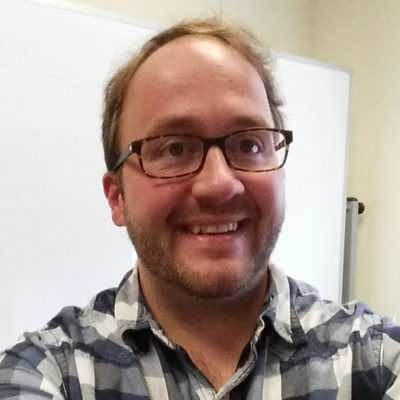
Sean O'Brien
Sean O'Brien is a lecturer in law at Yale Law School with expertise in cybersecurity and mobile device forensics. Sean founded Yale Privacy Lab, where his research includes privacy auditing of Android apps. His current focus is IoT device security, work that has culminated in the PrivacySafe appliance and the GNU Health Embedded effort for the platform.
Free software game restoration
Games are part of our culture, like books and movies. While we have access to some older games via emulators, we are failing to save our free software history. Many developers try to develop a game, and then the game reaches a satisfactory state or the developer just moves on. Finding these games can be hard. Eventually libraries or languages change, and the game no longer runs. This talk will discuss restoring games for future players to enjoy.

Dennis Payne
Dennis Payne is a free software game developer in his spare time. He has started Bt Builder and Troll Bridge, and maintains several other games he has stumbled across. "Open Game Source" is a series of articles about his game development efforts.
Lightning talks
A lightning talk is a five-minute presentation on any topic that you think would be interesting to a group of free software users, hackers, and activists. Each session has time for a total of twelve talks. Since we're seeking a breadth of relevant topics, submitting a talk does not guarantee you a slot.
We'll pick the twelve talks that we feel are most interesting to our attendees once we've gotten enough submissions. We're especially interested in hearing from new people who haven't ever spoken at an FSF event!
More instructions:
https://libreplanet.org/wiki/LibrePlanet:Conference/Lightning_Talks
We'll pick the twelve talks that we feel are most interesting to our attendees once we've gotten enough submissions. We're especially interested in hearing from new people who haven't ever spoken at an FSF event!
More instructions:
https://libreplanet.org/wiki/LibrePlanet:Conference/Lightning_Talks

Libre Planet
Talk upload instructions
You should upload your video to our ftp server:
Host: `photoupload.fsf.org`
Username: `anonymous`
Port: `22`
Folder: `upload-here`
When you are done uploading email campaigns@fsf.org to let us know what video file to use.
You should upload your video to our ftp server:
Host: `photoupload.fsf.org`
Username: `anonymous`
Port: `22`
Folder: `upload-here`
When you are done uploading email campaigns@fsf.org to let us know what video file to use.
Public Invention: Free hardware inventions “in the public, for the public”
Public Invention is a new nonprofit that hopes to create a movement to help humanity by bringing the values that power the free software movement to hardware and math. The basic tactic is to form teams of inventors that work publicly, in the light, with free licenses.
This talk will be accompanied by a demonstration of physical devices that embody the public-invention project-based approach. These projects will be explained as a motivation of our intellectual property policies and specific operating practices. We will briefly touch on the six most advanced projects supported by Public Invention, and briefly mention some of the forty invention ideas that have been donated to Public Invention to develop and build. We will place Public Invention in a historic context, discuss the mission, and explain our vision for the future: a world where inventing “in the public, for the public” is the norm.
This talk will be accompanied by a demonstration of physical devices that embody the public-invention project-based approach. These projects will be explained as a motivation of our intellectual property policies and specific operating practices. We will briefly touch on the six most advanced projects supported by Public Invention, and briefly mention some of the forty invention ideas that have been donated to Public Invention to develop and build. We will place Public Invention in a historic context, discuss the mission, and explain our vision for the future: a world where inventing “in the public, for the public” is the norm.

Robert Read
Robert L. Read, PhD (computer science), after serving in director-level software engineering architecture and management positions, was a Presidential Innovation Fellow in 2013, where he advocated free software in the US federal government. He is a champion of Agile software development methods, an inventor, and a thought-leader. He holds two patents in optics. His most popular publication is “How to be a Programmer.” He began Public Invention in 2015 to produce free-libre hardware inventions and mathematical progress, and the project has mentored about eight students and produced two peer-reviewed papers so far. Rob is also the chief scientist of Skylight Digital, and CTO of Wacuri, Inc. He speaks Esperanto fluently.
Digital painting with Krita on GNU/Linux: cute creature concept-art
David Revoy, author of the webcomic Pepper&Carrot, will do a live digital painting performance with Krita from his studio in the south of France. The creation of cute creatures will only be a pretext to highlight some of the best features and hidden treasures of the software Krita. Brushes, transform tools, reference tools and filters will be presented, as well as a list of other features.

David Revoy
David Revoy is a French digital artist, and a pioneer in the usage of a 100% libre workflow for digital painting in a professional environment. Revoy is a Krita instructor, and an art director for the Blender Foundation on Sintel and Spring open movies. He was a concept-artist for works including “Tears of Steel” and “Cosmos Laundromat.” He is also an illustrator for the Contributopia Campaign by Framasoft, and of course, the founder of the free (libre) Web comic “Pepper and Carrot.”
Bicycles as a metaphor for free software
While riding from Seattle to Bellingham, from my biking community to my GNU/Linux community, I considered just how freeing each transition had been. Historically, biking has been associated with many things including health, happiness, and feminism. What about free software?
During the next 45 minutes, we will explore the free engineering, grassroots innovation, hands-on learning, hidden dangers, bright horizons, and overall rad routes that both free software and bicycles cover mile by mile, together.
This ride through history, including the past, present, and future, will leave both free software and cycling enthusiasts with a deeper understanding of what it is that "sparks joy" within members of each group.
Join me in an exploration of excitement, engineering, and freedom as we take this journey on two-wheeled, self-powered transportation and transformation!
During the next 45 minutes, we will explore the free engineering, grassroots innovation, hands-on learning, hidden dangers, bright horizons, and overall rad routes that both free software and bicycles cover mile by mile, together.
This ride through history, including the past, present, and future, will leave both free software and cycling enthusiasts with a deeper understanding of what it is that "sparks joy" within members of each group.
Join me in an exploration of excitement, engineering, and freedom as we take this journey on two-wheeled, self-powered transportation and transformation!
. Salt
Wm Salt Hale, is a Seattle local who studies Tech+Society at the U. of WA Dept. of Communication and is Community Director at Snowdrift.coop.
He attends, organizes, and speaks worldwide at: conferences, conventions, events, festivals, and faires; on various topics including: communication, crowdmatching, internet technologies, linux, music, sci-fi/fantasy, security, and windsports. Salt is very approachable and will always be found wearing a kilt.
/?/ Kilted Globetrotter,
Free/Libre/Open Advocate
and Lifelong Hacker /?/
He attends, organizes, and speaks worldwide at: conferences, conventions, events, festivals, and faires; on various topics including: communication, crowdmatching, internet technologies, linux, music, sci-fi/fantasy, security, and windsports. Salt is very approachable and will always be found wearing a kilt.
/?/ Kilted Globetrotter,
Free/Libre/Open Advocate
and Lifelong Hacker /?/
Font Bakery: Gathering font engineering knowledge while improving a large collection of libre fonts
Typography is a complex topic, and there are there are plenty of ways that a digital font can malfunction. Font Bakery aspires to become the ultimate font checking tool. To reach that goal, the project is structured as a collaborative compilation of font engineering knowledge and best practices.
This talk will discuss the challenges in gathering font engineering knowledge, and compiling it in a manner that is both effective for the implementation of automated quality checks, and simple and easy to grasp for type designers. We'll also share insights into git-based workflows for the development of libre fonts.
This talk will discuss the challenges in gathering font engineering knowledge, and compiling it in a manner that is both effective for the implementation of automated quality checks, and simple and easy to grasp for type designers. We'll also share insights into git-based workflows for the development of libre fonts.

Felipe Sanches
Felipe Sanches is a software freedom activist and developer with contributions to the development of graphic design, CAD, 3D printing, and 3D modeling libre software such as Inkscape, OpenSCAD, and GNU LibreDWG. During the last few years, Felipe has provided professional libre software development services focused on font engineering and quality assurance for fonts. You can learn more about his work at https://www.fsf.org/working-together/profiles/felipe-sanches.
The Gandhian way to freedom and privacy
The time is ripe to build a strong case for individual self-hosting, backed up by community-hosted public network services with mutual trust among members. In this talk, I will build a strong case for individual self-hosting backed up by community-hosted public network services by drawing parallels to Mahatma Gandhi's "Charkha Movement," in which the traditional spinning wheel became a powerful symbol of self-sufficiency and freedom. We will need a similar approach within our communities in order to truly own our devices and networks, and reclaim our right to privacy.
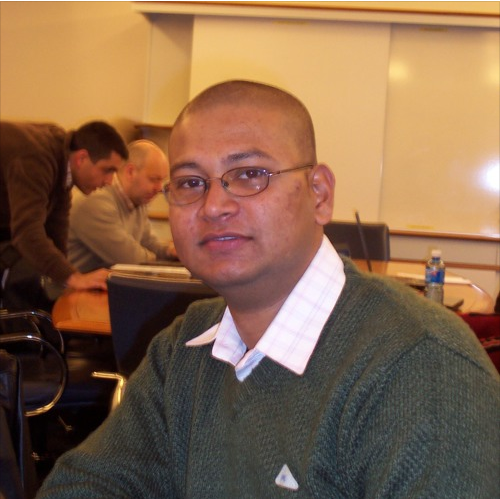
Nishant Sharma
Nishant Sharma is a free software and libre hardware entrepreneur. He is a mechanical engineer by education, and has been making a living from free software since 2003.
He is co-founder and tech lead at Unmukti Technology, in India, where he works on building network equipment including SD-WAN gateways, VPN appliances, firewalls, access points, home edge computing gateways, etc. These devices are branded as Hopbox. He also worked for DeepRoot GNU/Linux, an Indian VSAT, and a Pan-European ISP, before founding Unmukti in 2010.
Nishant was lead translator for Debian Installer l10n to Hindi during 2006-07, and a OpenStreetMap volunteer mapper. He actively contributes to the OpenWrt project and its packages.
These days, he tries to build awareness for building network equipment and self-hosting among students and enterprise decision makers.
He is co-founder and tech lead at Unmukti Technology, in India, where he works on building network equipment including SD-WAN gateways, VPN appliances, firewalls, access points, home edge computing gateways, etc. These devices are branded as Hopbox. He also worked for DeepRoot GNU/Linux, an Indian VSAT, and a Pan-European ISP, before founding Unmukti in 2010.
Nishant was lead translator for Debian Installer l10n to Hindi during 2006-07, and a OpenStreetMap volunteer mapper. He actively contributes to the OpenWrt project and its packages.
These days, he tries to build awareness for building network equipment and self-hosting among students and enterprise decision makers.
Patents and freedom: Where we stand now
For many years, the existence of software patents, and the threat that certain entities would use them against free software, was an issue of significant concern to the free software community. Since then, there have been many court decisions that have altered the landscape of what may be patented, procedures allowing challenges to patents outside of the court system, industry initiatives to create "patent peace" around parts of the free software world, and changes in the behaviors of certain patent holders once thought to present the greatest threat to free software. This presentation will give an overview, designed for a non-legal audience, of the latest developments, and suggest where the future of patents and free software may be headed.
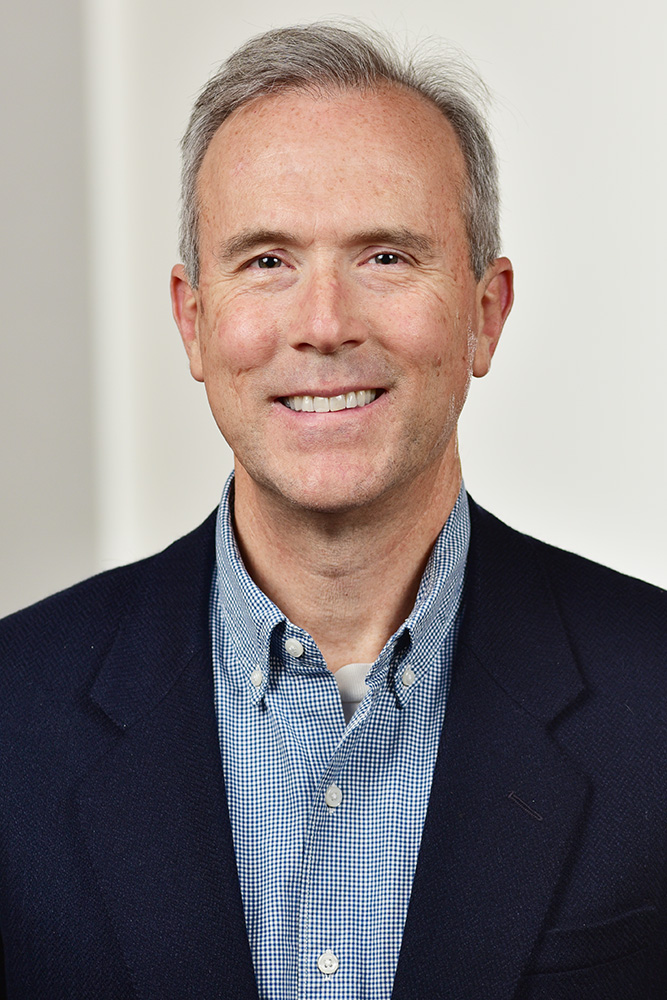
McCoy Smith
McCoy Smith is the founding attorney at Lex Pan Law, a technology and intellectual property law firm in Portland, Oregon, USA. He also is on the editorial committee of the Journal of Open Law, Technology, & Society (JOLTS). For more than fifteen years, he acted as the primary support attorney for free software matters at Intel Corporation. Prior to joining Intel, he was in private practice in New York, NY and Washington, DC, specializing in IP litigation and patent prosecution. He was also a patent examiner in the US Patent and Trademark Office prior to law school. He is admitted to practice in New York, California, Oregon, and the US Patent & Trademark Office.
Stewarding technological freedom in agriculture
Farming is one of humanity’s oldest technologies, and while the principles of free software may only seem relevant to the past 70 years of innovation, farmers have been struggling to keep their technology free for the last 12 millennia. In this session, we’ll look at some scenarios of where this truth has been borne out in our work creating free farm management software with farmOS, and deploying free hardware solutions with Edge Collective. These projects have shown us that the principles of free software can and do make a real difference to farming communities, both large and small, across the globe. Whether it’s by preserving the right to repair tractors, sensors and other equipment on their farm, or by enshrining their right to access, store, and share their valuable data when, where, and how they choose, granting farmers with more freedom leads to better outcomes for the communities who rely on them.
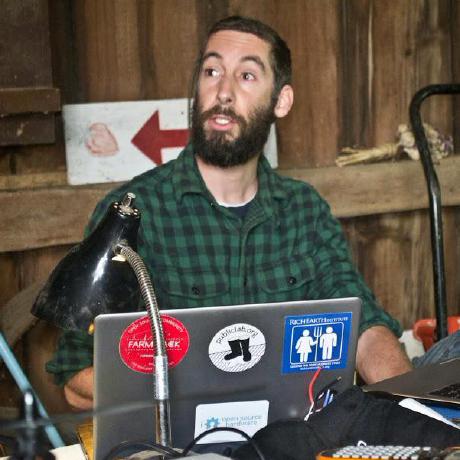
Michael Stenta
Michael Stenta is the founder and lead developer of farmOS, a free software farm planning and record-keeping system.
This session will feature two additional panelists:
* Jamie Gaehring has worked on farms and at farmers' markets for most of the last two decades, and today, builds frontend software for farmers with farmOS.
* Don Blair builds free software-compatible hardware systems for agriculture in collaboration with farmers and researchers.
All three presenters are members of the Gathering for Open Ag Tech (GOAT / goatech.org).
This session will feature two additional panelists:
* Jamie Gaehring has worked on farms and at farmers' markets for most of the last two decades, and today, builds frontend software for farmers with farmOS.
* Don Blair builds free software-compatible hardware systems for agriculture in collaboration with farmers and researchers.
All three presenters are members of the Gathering for Open Ag Tech (GOAT / goatech.org).
Community healing: Re-establishing norms, trust, and truth after crises
Free software comprises a commons shared and coordinated voluntarily by users, developers, and others. If we think of free software participants as a self-governing community, they need paths toward setting their own expectations and standards, evaluating facts, and developing trust between them. Those are three interrelated but different kinds of processes. When one of these processes is disrupted, we rely on the others. When all three are disrupted, crises can spiral. Each may need to change, be reconfirmed, or left as an open question.
In this talk, we'll explore practical approaches for community leaders, moderators, and contributors, as well as concepts of deliberative democracy from Habermas' theory of communicative action.
In this talk, we'll explore practical approaches for community leaders, moderators, and contributors, as well as concepts of deliberative democracy from Habermas' theory of communicative action.
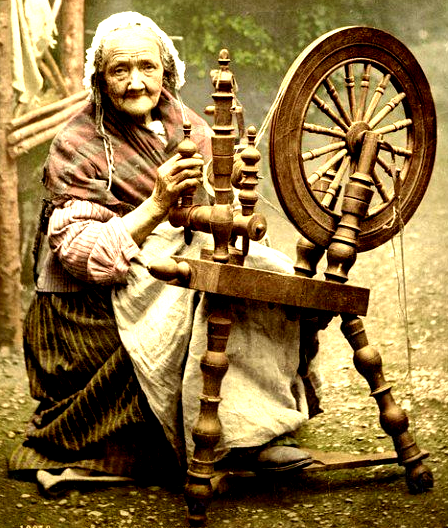
Katheryn Sutter
Katheryn Sutter is an indefatigable DIY tinkerer, and a user of free software and Debian OS for day-to-day computing since 2003. She holds a PhD in community development and policy analysis, and a BS in human resources and family studies. Her fields of expertise include consensus-building, nonprofit board training, qualitative data analysis, and democratic theory.
Sugar Labs -- Past, Present, and Future
Sugar Labs is a community of developers, teachers, and students, all working together on educational free software projects. Everyone learns by doing, contributing, critiquing, and reflecting on their work -- anything from short code created in a visual programming language to a major contribution to a critical project. The Sugar Labs' community has been around and active for more than a decade, it operated as a member organization under the umbrella of Software Freedom Conservancy, and now we are entering an exciting new chapter as its own non-profit. In this talk, we will discuss a little bit of the history of Sugar Labs, what has made it special over the years, and what we expect for the future. We will demonstrate some of our leading learning tools, such as Turtle Blocks, Music Blocks, and the Sugar OS. Lastly, we are open to ideas and questions about our future.

Devin Ulibarri
Devin is co-creator of Music Blocks, a visual programming language for music created with Walter Bender as a SugarLabs project. He is co-founder and president of MAP Family Learning Center, which seeks to improve child development by offering high-quality classes in music, art, and programming. Devin is former chair of guitar for prep and continuing ed at New England Conservatory. Devin serves as co-admin and faculty for Boston GuitarFest, a prestigious festival directed by renowned guitarist Eliot Fisk.
SugarLabs founder Walter Bender will be co-hosting this presentation.
SugarLabs founder Walter Bender will be co-hosting this presentation.
LibreOffice's tenth anniversary: The many faces of a global free software community
LibreOffice was announced in 2010, and will celebrate its tenth anniversary in 2020. Over these last ten years, the global community behind this project has grown from a small group of volunteers, mostly based in Europe, to a large and diverse group of free software advocates spanning many countries. This presentation will discuss the challenges faced by the community during this incredible growth, and will provide a better understanding of the community for people who have only followed this evolution through announcements and events.
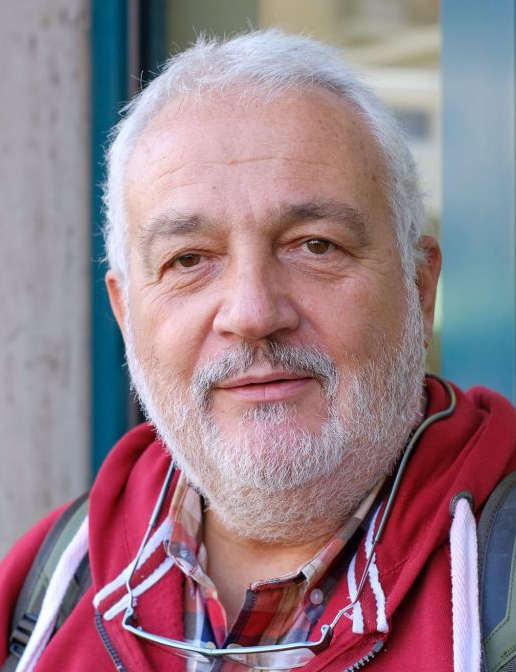
Italo Vignoli
Italo Vignoli is a founding member of The Document Foundation, the chairman emeritus of Associazione LibreItalia, an emeritus member of the OSI board, and co-chair of the ODF Advocacy OASIS Open Project. He co-leads LibreOffice marketing, public relations, and media relations, co-chairs the certification program, and is a spokesman for the project. He has contributed to large migration projects to LibreOffice in Italy, and is a LibreOffice certified migrator and trainer. From 2004 to 2010, he has been involved in the OOo project. In his professional life, he is a marketing consultant with decades of experience in high tech, and a visiting professor of marketing, public speaking, and public relations post-graduate courses. He has a degree in humanities at the University of Milan, and MBAs in marketing, public relations, and journalism.
Free software and the environment
Free software is much better than proprietary software in many ways, but this talk is about how it’s also a more environmentally sustainable model for computing. Free software makes it easy to reuse old machines and prevent excess waste from going into the environment. This can't be done with proprietary software because the manufacturer can force updates that slow the machine down, or they could stop supporting the system altogether. This is not a problem with free software, because the source code can be modified.
Ben O'Neill
I am a high school student from the Boston area. I've been interested in free software since I was 13. I enjoy programming, listening to music, hanging with friends, and watching war movies.
![[ LibrePlanet 2020 ]](/2020/assets/img/logo.svg)